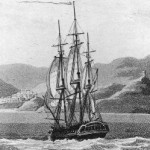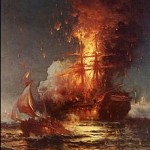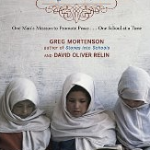♣
Three Tunisian Journalists Arrested
[Trois journalistes arrêtés]
On 15 February, 2012, Tunisian authorities arrested the owner and publisher of the newspaper Attounsia, as well as one of its editors and a reporter, for “violating public morals,” after the publishing on its front page a photo one of a sports figure with a nude woman. Here’s what the page looks like:
This is the first documented incident of journalists being arrested since the Tunisian Revolution overthrew the regime of Zine El Abidine Ben Ali in January 2011. The Committee to Protect Journalists called on authorities to release them immediately.
“Really, this is laughable,” a staff member of the Arabic-language daily said. “This photo has gone around the world and yet they stand accused of violating decency,” he said. The photo was widely shared on Facebook. Originally, it appeared on the cover of the German magazine GQ.
الجمهورية التونسية * المجلة الجزائية
الفصل 121 ثالثا (أضيف بالقانون عدد 43 لسنة 2001 المؤرخ في 3 ماي 2001 والمتعلق بتنقيح مجلة الصحافة)
يحجر توزيع المناشير والنشرات والكتابات الأجنبية المصدر أو غيرها التي من شأنها تعكير صفو النظام العام أو النيل من الأخلاق الحميدة وكذلك بيعها وعرضها على العموم ومسكها بنية ترويجها أو بيعها أو عرضها لغرض دعائي.
وكل مخالفة للتحجير المنصوص عليه بالفقرة السابقة يمكن أن يترتب عنه زيادة على الحجز في الحين عقاب بالسجن من 6 أشهر إلى خمسة أعوام وبخطية من 120 دينارا إلي 1200 دينار
————–
Last August, the magazine Tunivisions published an article featuring Tunisian supermodel Kenza Fourati clothed only in body paint that raised questions about freedom of the press and what is appropriate to show on the cover of a magazine.
Trois journalistes arrêtés pour une couv’ osée
“Vive la Révolution!”
FOLLOW UP, Thursday, February 23:
Tunisian newspaper publisher arrested over nude photo released ahead of verdict
A court has released the publisher of a Tunisian newspaper accused of violating public morals by publishing a photo of a naked woman, pending a verdict in the case. Publisher Nasreddine Ben Saida was released Thursday while he awaits the verdict in the case, expected March 8.
FOLLOW UP: 9 March 2012
Copyright 2012 The New York Times Company. All Rights Reserved.TUNIS (Reuters) — A Tunisian court fined a newspaper publisher $665 on Thursday for printing a photograph of a soccer player posing with his nude girlfriend, a ruling that raised concerns about a possible news media crackdown by the country’s new Islamist government.
The newspaper, Attounissia, is a tabloid created after the revolution that ousted President Zine el-Abidine Ben Ali last year. It published a photograph last month of Sami Khedira, a soccer player for Real Madrid who is Tunisian and German, dressed in a tuxedo with his hands covering the breasts of his naked girlfriend, Lena Gercke, who is a German model.
The photograph angered the country’s public prosecutor, who ordered the detention of the publisher, Nasreddine Ben Saida, as well as of two senior journalists at the newspaper. The journalists were quickly released, but Mr. Ben Saida spent eight days in jail before being released on bail during a court hearing on Feb. 24.
Mr. Ben Saida was fined on Thursday for offending public morals and taste by publishing the photograph, the official news agency TAP reported. The case has led secular Tunisians to fear that the Islamist-led government will seek increasingly to censor material it deems offensive.
غرامة بألف دينار لمدير جريدة “التونسية”
قضت أمس الدائرة الجناحية الثامنة بالمحكمة الإبتدائية بتونس بتخطئة مدير جريدة «التونسية» نصر الدين بن سعيدة بخطية مالية قدرها ألف دينار وإعدام المحجوز من أجل تهمة وضع وبيع نشرات وكتابات إلى العموم من شأنها النيل من الأخلاق الحميدة
وكذلك المس من صفو النظام العام طبق أحكام الفصل 121 من المجلة الجزائية. وكان بن سعيدة أطلق سراحه بعد أن قضى ثمانية أيام في سجن ايقافه وذلك على خلفية نشر»صورة فاضحة» للاعب الكرة القدم الألماني من أصل تونسي سامي بن خذيرة البالغ من العمر 24 سنة صحبة عارضة الأزياء الألمانية لينا جارك البالغة من العمر 23 عاما بصحيفة «التونسية».
















